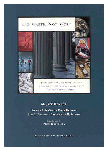
-
Tax Waste, Not Work
- Tax Waste, Not Work proposes a new approach to fiscal and environmental policy in a way that could attract broad political support. Redefining Progress, a US policy research group,
- TWO BIRDS WITH ONE STONE
by Paul Krugman, economics professor at MITMost sensible people are, with considerable justification, suspicious of policy advocates who promise too much. They know that, as a general rule, an offer that sounds too good to be true almost always is. If the proposal involves economics, they remember that they are not supposed to believe in free lunches.
Redefining Progress argues that a shift in the way we raise revenue — involving a partial replacement of taxes on earned income with taxes on pollution and waste — can not only protect the environment but make us richer, too. They suggest that there is a free lunch that can kill two birds with a single stone — a prospect that may seem as unlikely as the metaphor is mixed. Tough-minded readers may be inclined to dismiss this as mere wishful thinking.
They would, however, be wrong. The proposal's general outline — replacing our current command-and-control system of environmental protection with one based on the price mechanism, and using the revenue from that system as a partial replacement for other sources of revenue — is not at all a silly or unrealistic scheme. On the contrary, it is sensible and important — and may well be an idea whose time has finally come.
- To appreciate the reasonableness of what Redefining Progress has to say, it is important to understand that it is based on several well-founded propositions. First, measures to protect the environment — indeed, broader measures than we have instituted so far — are essential. Second, taxes (or other price mechanisms, such as the sale of pollution licenses) are in many cases the most effective way to implement such protection. Finally, since existing taxes already distort incentives to work, save, and invest, any revenue generated by pollution taxes that allows other taxes to be lower creates an extra "dividend" to the economy.
- The proposition that it is important to protect the environment still has a few
well-funded doubters. However, at this point the economic and human costs of pollution and other burdens
on the environment, from the health effects of car exhausts to the collapse of overexploited
fisheries, are by now too obvious for any but the most determined ideologue to ignore.
And it is also obvious that our current system does not provide individuals to act in an environmentally responsible manner. For example, I as an individual bear hardly any of the indirect costs that I impose on other people by driving my car or eating a fish dinner. Some form of public action to protect the environment against the consequences of the individual pursuit of self-interest is crucial.
Moreover, it has become clear in the last few years that the scope of such costs is wider than previously imagined. When environmentalism first became a powerful political force in the 1960s, most of the perceived problems were more or less local: They involved the quality of air in a given city, or the quality of water in a single river.
As world population, production, and consumption grew and continue to grow, however, we see increasing evidence of human impacts on the global — as opposed to the local — environment. With the emergence of a scientific consensus on such issues as the adverse effect of manmade chemicals on the ozone layer or that of carbon dioxide and other greenhouse gases on global temperatures, we have reached a point at which decisions that made sense from an individual perspective may impose large costs not only on their neighbours but on humanity as a whole.
- It is probably safe to say that even a few years ago a monograph proposing such a
policy change would simply have been ignored. Environmentalists were still too hostile to markets;
many liberals were still attracted to bureaucratic schemes of economic management; many
conservatives were ideologically committed to the view that environmental problems were nonexistent.
But here, we have a proposal that cuts across the normal ideological lines: it is pro-environment, but market-oriented; it takes supply side concerns about the effects of taxes on incentives seriously, but proposes to meet them without counting on wishful thinking about economic growth. This kind of new thinking deserves attention ... perhaps now is the moment when it will get it.
(— from the foreword to Tax Waste, Not Work)

Top of Page
This Letter's Main Page
Stats | Subscribe | Index |
The Jobs Letter Home Page | The Website Home Page
jrt@jobsletter.org.nz
The Jobs Research Trust -- a not-for-profit Charitable Trust
constituted in 1994
We publish The Jobs Letter
changing fiscal and environmental policy
from The Jobs Letter No.118/ 18 February 2000
|
— Tax Waste, Not Work |
Tax Waste, Not Work argues neither for higher taxes overall, nor a change in the distribution of the tax burden up or down the income scale. It is a proposal that would replace a portion of national taxation, perhaps 5 to 10 percent, with new environmental levies. The tax shift would also provide a significant economic stimulus package with no revenue cost.
 Tax Waste, Not Work
Tax Waste, Not Work
- How changing what we tax can lead to a stronger economy and a cleaner environment
by M.Jeff Hamond and others
foreword by Paul Krugman
(pub April 1997 by Redefining Progress)
order from website www.rprogress.org
 A summary of this monograph is available as a document (in pdf format) from http://www.rprogress.org/pubs/pdf/TaxWaste_sum.pdf
A summary of this monograph is available as a document (in pdf format) from http://www.rprogress.org/pubs/pdf/TaxWaste_sum.pdf







